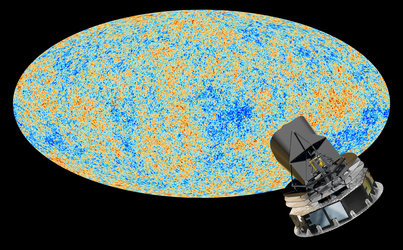GOCE Spacecraft Operations Manager: Interview with Juan Piñeiro
Juan Piñeiro is the Spacecraft Operations Manager (SOM) for GOCE. The 42-year-old Piñeiro focuses on flying the spacecraft, but with an academic background in physics, he is also keenly interested in this unique mission's scientific results.
Piñeiro works at ESA's European Space Operations Centre (ESOC), Darmstadt, Germany, under the mission's Flight Operations Director/Ground Segment Manager, and he manages a Flight Control Team of 13 engineers, analysts and spacecraft controllers dedicated to GOCE.

Juan Piñeiro is from Vigo, Galicia, Spain, and holds a Masters degrees in Physics from the Universidad Complutense de Madrid. He started work at ESA's European Space Astronomy Centre (ESAC), Spain, in 1991 on the joint ESA/NASA International Ultraviolet Explorer (IUE) and, from 1995, on the Infrared Space Observatory (ISO).
He moved to ESOC in 1998 to work as Integral Spacecraft Operations Engineer and, later, Deputy SOM. He was appointed SOM for GOCE in November 2003. Juan is married with two children, ages 4 and 5. He likes running and says that - recently - the only training time he can find is at 6 am - before the children are awake.
ESA: What do you find most interesting about GOCE?
Juan Piñeiro
Building the ground segment - the hardware and software on the ground that supports the spacecraft in orbit. It's an interesting challenge to assemble, test and validate what is essentially a 'system of systems.' This is what enables us to operate the spacecraft and receive and deliver the scientific data to the scientists. Also, for GOCE, LEOP - the launch and early orbit phase - is critical and, really, rather exciting.
ESA: You originally studied science - physics. What got you interested in spacecraft operations?
Juan Piñeiro
It wasn't such a deliberate switch. After I completed post-graduate research at the observatory in Las Palmas, Spain, I looked for a job - and a position with the IUE mission was open. It was a very interesting mission and we carried out both science operations and spacecraft control from ESAC, near Madrid, jointly with NASA - we had an 8-hour shift each day. I was involved in both, so I guess I started on the science side and gradually moved over to operations and systems engineering.
We are always just a little cautious - to reduce risk. We test everything first; but once we're ready, we're usually pretty confident of success.
ESA: What are some of the challenges in building the flight control team? Are different nationalities an issue?
Juan Piñeiro
Actually, even before joining ESA, I've always worked on international teams - I've never worked as part of a 'Spanish-only' team, so I don't know anything different. In general, Flight Control Teams at ESOC are comprised of very motivated and professional people that like what they do, and this greatly facilitates the SOM's job. I would say that nationality plays very little role - you have to take this into account, but it's not major. It's more important to understand everyone's personalities and areas of expertise and then organise the team and assign roles so as to make best use of these. For GOCE, we try to be flexible and accommodate individuals.
ESA: What motivates you each day? What is most satisfying about working on the flight control team?
Juan Piñeiro
This is tremendously satisfying work in the sense that you build a system and then you immediately see the results - either it works, or it doesn't. You get feedback quickly - even when we are just doing simulations and training on the ground. You really get to see if your work is a success, and I enjoy that. Most days are incredibly full; I arrive at ESOC, and I've got a precise list of things to achieve - you can't just arrive and see what's up for the day.
Flight Control Teams are comprised of very motivated and professional people that like what they do, and this greatly facilitates the SOM's job.
ESA: Once launch and LEOP are done, what's next in 2009?
Juan Piñeiro
If everything runs nominally with the spacecraft, then we are looking forward to a successful routine phase in 2009; the mission is only scheduled to last 20 months. In normal operations, our main task is to closely monitor everything on board. With other missions, we must react to observation requests for individual instruments from the scientists, we have to perform detailed scheduling for observation periods and ground station passes, and do a lot of planning - but this isn't so with GOCE. Nevertheless, GOCE is very complex and some functions are very difficult to verify on ground before launch, so if there are any problems, we could be busy for quite a long period after launch.
ESA: What advice can you offer to anyone interested in working in spacecraft operations?
Juan Piñeiro
Working and achieving satisfaction in this field requires that you be a team player and have the ability to work in a disciplined way within procedures. Creativity is important anywhere, but taking a rigorous and analytical approach is paramount. You see many different people working on missions - people with widely differing academic and professional backgrounds, so you need to have a global, 'systems' view and not be too involved in one narrow speciality. In spacecraft operations, we are always just a little cautious - to reduce risk. You usually can't undo a system change or command once it's done, so we prefer to take an incremental approach. We test everything first; but once we're ready, we're usually pretty confident of success.
Editor's note:
This is one in a series of interviews with a few of the key people that are involved in the GOCE mission. Please check back as the list will be added to over the coming weeks.















 Germany
Germany
 Austria
Austria
 Belgium
Belgium
 Denmark
Denmark
 Spain
Spain
 Estonia
Estonia
 Finland
Finland
 France
France
 Greece
Greece
 Hungary
Hungary
 Ireland
Ireland
 Italy
Italy
 Luxembourg
Luxembourg
 Norway
Norway
 The Netherlands
The Netherlands
 Poland
Poland
 Portugal
Portugal
 Czechia
Czechia
 Romania
Romania
 United Kingdom
United Kingdom
 Slovenia
Slovenia
 Sweden
Sweden
 Switzerland
Switzerland



























